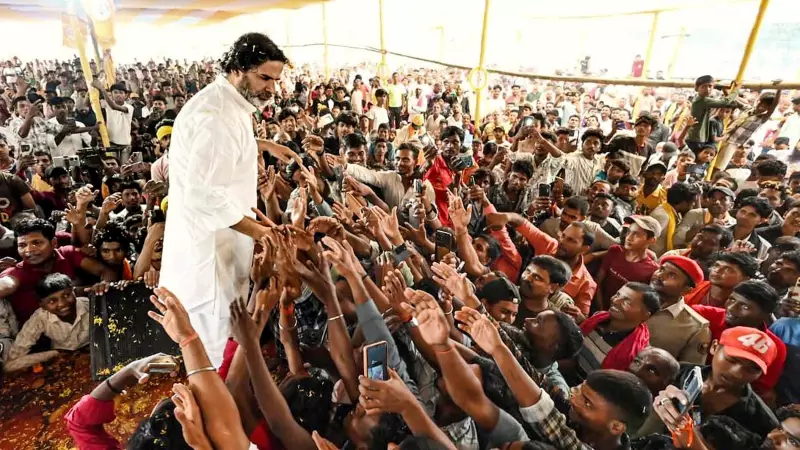
In the heated arena of Bihar's political landscape, one topic remains conspicuously hushed by the ruling NDA alliance while being amplified by their opponents. The state's contentious liquor ban, once a flagship policy, has transformed into an electoral hot potato that neither side wants to handle directly.
The Strategic Silence of NDA
The National Democratic Alliance, comprising BJP and JD(U), has notably sidestepped the prohibition issue in their campaign rhetoric. Political analysts suggest this calculated silence stems from several strategic considerations. The ban, implemented in 2016 by Chief Minister Nitish Kumar, has yielded mixed results that make it politically risky to champion aggressively.
While the policy initially garnered support from women voters who celebrated reduced domestic violence and improved household finances, its implementation has faced significant challenges. The emergence of a thriving illicit liquor trade and occasional tragic incidents involving spurious alcohol have complicated the narrative.
Opposition's Calculated Amplification
Meanwhile, opposition parties led by RJD have strategically positioned themselves as critics of the ban's implementation. Rather than opposing prohibition outright, they highlight the policy's failures and unintended consequences. This approach allows them to appeal to multiple voter segments simultaneously.
The opposition focuses on several key arguments:
- The rise of illegal liquor manufacturing and distribution networks
- Loss of significant state revenue from alcohol taxation
- Allegations of selective enforcement and corruption
- Economic impact on those employed in the previously legal liquor industry
The Electoral Calculus
This divergent approach reveals much about Bihar's complex political arithmetic. The NDA's silence suggests they recognize the ban has become a polarizing issue that could alienate as many voters as it attracts. For Nitish Kumar's JD(U), maintaining their pro-women voter base remains crucial, making outright abandonment of the policy politically dangerous.
The opposition's strategy, meanwhile, allows them to criticize governance without alienating social conservatives who support prohibition in principle. By focusing on implementation failures rather than the concept itself, they walk a careful political tightrope.
Beyond the Campaign Rhetoric
What makes this political maneuvering particularly significant is what it reveals about contemporary Indian politics. The Bihar liquor ban debate demonstrates how populist policies can become electoral liabilities over time, especially when implementation challenges emerge.
As voting day approaches, both alliances seem to have calculated that the prohibition issue is best addressed through silence or careful criticism rather than bold advocacy. This strategic positioning around a once-celebrated policy highlights the evolving nature of political priorities in one of India's most crucial electoral battlegrounds.
The ultimate electoral impact of this carefully choreographed dance around prohibition remains to be seen, but it undoubtedly represents one of the most fascinating subplots in Bihar's current political drama.






